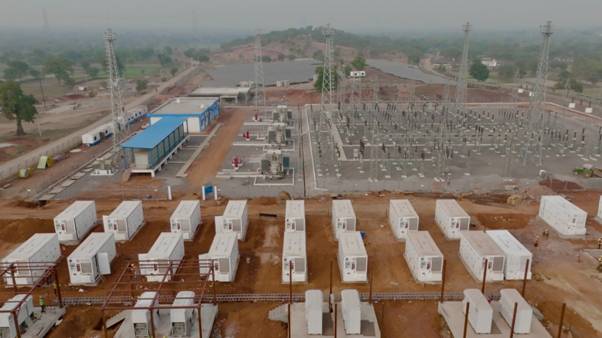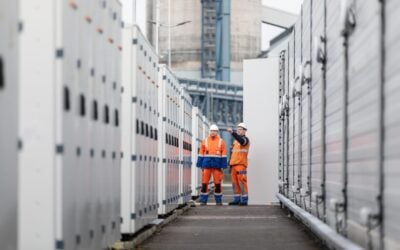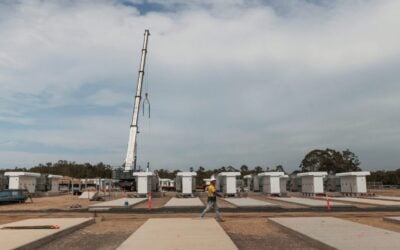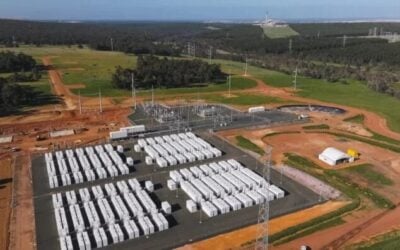
A new tender from the Solar Energy Corporation of India (SECI) seeks 2,000MW of solar PV combined with 1,000MW/4,000MWh of energy storage system (ESS) technology.
The state-owned corporation issued a Request for Selection (RFS) and supporting documents yesterday (31 July) for the latest in a quickly growing list of SECI tenders aimed at promoting the role of energy storage in integrating renewable energy capacity.
SECI is seeking proposals for build-own-operate PV projects with aggregate capacity of the above figures. Power purchase agreements (PPAs) over 25-year terms will be entered into with successful bidders by SECI, with power then to be sold to unnamed Buying Entities.
Buying Entities refer to any third-party consumer of bulk power, and these could include utilities or electricity distribution companies (‘discoms’), corporations, or other customers.
Try Premium for just $1
- Full premium access for the first month at only $1
- Converts to an annual rate after 30 days unless cancelled
- Cancel anytime during the trial period
Premium Benefits
- Expert industry analysis and interviews
- Digital access to PV Tech Power journal
- Exclusive event discounts
Or get the full Premium subscription right away
Or continue reading this article for free
The reverse auction will be held under the competitive bidding framework for the procurement of firm dispatchable power from grid-connected renewable energy power projects with energy storage resources, published by the Ministry of Power.
A pre-bid meeting will be held 12 August, and bids must be submitted by 2 September, 6pm IST. Projects must connect to the Inter State Transmission System (ISTS) and be in operation within 24 months of contract award.
0.5MW/2MWh ESS per 1MW of solar PV
The scope of work for developers involved will include setting up the transmission infrastructure required to connect their project to the point of ISTS interconnection, as well as constructing and putting the project into operation.
It is worth noting that the tender design is technology agnostic regarding ESS technology, unlike some other tenders which have specified for lithium-ion (Li-ion) battery energy storage systems (BESS), or pumped hydro energy storage (PHES).
ESS power output and capacity must match each megawatt of solar generation with 0.5MW and 2MWh (4-hour duration).
The minimum bid would be 50MW, with project capacities to be provided in multiples of 10MW, and no bidder would be allocated capacity exceeding 1,000MW.
Bidders must declare their projects’ capacity utilisation factor (CUF), and while this number can be revised within a year of the start of operation, it can only be revised upwards and must be in a range of 25% to 27%.
After this period the declared CUF must remain the same throughout the contract duration. However, developers will meet the terms of their agreement if CUF stays within +10% and -15% of declared value for the first 10 years after the scheduled commencement of supply date (SCSD), and within +10% and -20% thereafter to the end of the 25-year PPA.
Crucially, projects must also provide energy to the Buying Entity during four peak demand hours each day, mandated at 2,000kWh of energy per megawatt of the rated project capacity in AC terms.
See here for SECI RFS and other documents including model PPA and power sale agreement (PSA).
SECI tenders pushing India’s renewable and storage agenda
As mentioned, this is the latest in a line of recent large-scale tenders from SECI, including both standalone energy storage and hybrid facilities paired with renewables.
The corporation’s tenders have been credited with helping bring down the cost of storage. One recent auction for 1,200MW of ISTS-connected solar PV and 600MW/1,200MWh BESS was described by one expert as a “game changer”.
Another recently concluded SECI tender for Firm Dispatchable Renewable Energy (FDRE) awarded 630MW of capacity about a week ago. Winning tariffs for that were higher at IR4.98/kWh and IR4.99/kWh, but this is due to that solicitation’s more stringent rules on supplying energy at specified peak times.
The corporation has also launched India’s biggest standalone BESS tender to date, seeking 1,000MW/2,000MWh aggregate output and capacity, as reported by Energy-Storage.news at the beginning of this month.
India’s recent Union Budget, announced by finance minister Nirmala Sitharaman 23 July, offered a commitment to policies promoting pumped hydro, in addition to incentives and subsidy schemes for rooftop solar PV.
It did not contain any major new support for other energy storage technologies, and while some industry stakeholders had requested exemptions or reductions to Global Sales Tax (GST) on battery equipment, this was not forthcoming.
However, the previous year’s budget included a pledge of Viability Gap Funding (VGF) to support standalone BESS tenders for 4GWh, hosted by SECI—which is administered by the Ministry of Power’s Ministry of New and Renewable Energy (MNRE)—and this was considered a big win for the storage sector at the time.





